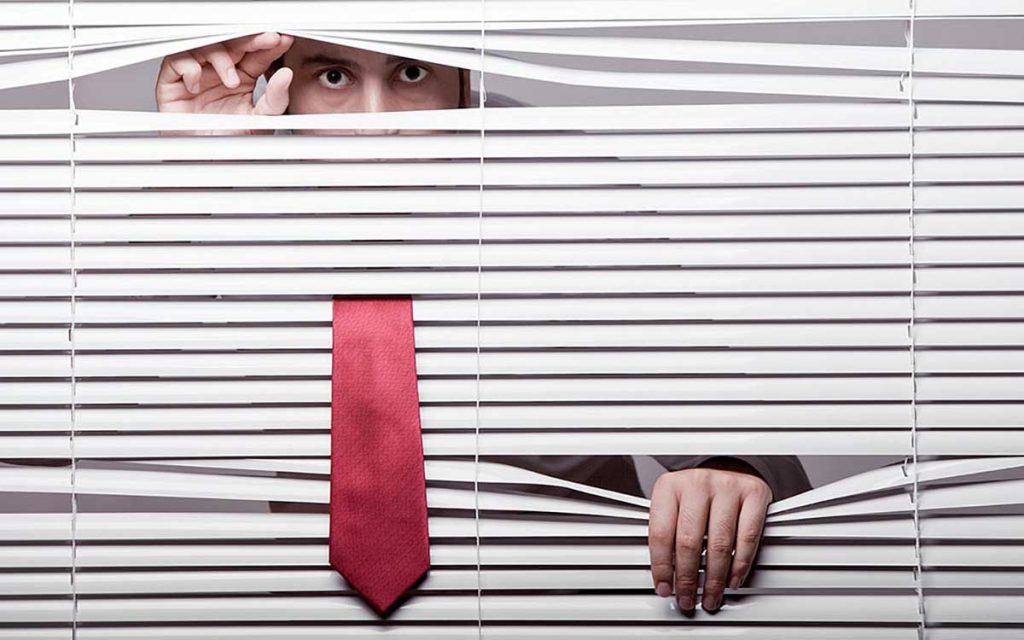You know you’re not supposed to cheat. It’s dishonorable. It means you got something you really didn’t earn. If you believe in “what goes around comes around,” you might even avoid cheating because of its bad Karma.
But just like a white lie, you’ve probably encountered times in your life where itty-bitty cheating didn’t seem to hurt anyone, so you did it. And you got away with it. It seemed harmless in the end.
But if you’re cheating on a hearing test, it’s far from harmless. This is one time you don’t want to guess your way to a passing grade.
When a Passing Grade Isn’t a Good Thing
In the 1950s standardized tests became the measure for school achievement and college admittance across the US. With your trusty pencil, you filled in the bubbles for multiple choice questions. If you ran out of time, you just filled in a random answer for the remaining bubbles, hoping you’d get at least some of them right.
It was even encouraged. It’s not technically cheating. (And it could boost your grade a little!)
This way of thinking is ingrained in us. If we don’t know the answer, we guess. We hope for the best.
But in the case of a hearing test, getting a passing grade when you can’t hear isn’t a good thing.
We’ll discuss it. But first, let’s look at how and why people cheat on their hearing tests.
Why Do People Cheat on Hearing Tests?
For many people, “failing” a hearing test means you’re getting older. Or you’re ashamed that you didn’t listen when your parents told you not to turn the radio all the way up in the car.
Many people don’t want to admit that they might need a hearing aid. They want to prove to themselves that they can get by without one. Or they want to feel like their hearing loss requires higher settings on a hearing aid.
So they lie about what they can hear.
Ways to Cheat on Your Hearing Test
Just like when you were in school, some people are better at cheating than others.
If you’re a musician or worked in a factory-type job, you’ve probably spent a lot of time in loud settings. Even if you don’t realize it, you’ve taught yourself how to read lips. You use deductive reasoning to determine what’s being said when you can’t hear it.
During the test, you use your skills to “figure out” what someone said in the test even though it sounded muffled. If you’re really good at it, you may completely fool your audiologist.
If you’re really brainy, then you might have an above-average ability to infer what someone said. You also can fool the audiologist.
Ha Ha. You showed them. You cheated your way through the test.
You may not even realize the consequences at the time, but soon it will become obvious.
This Cheating Won’t Get You Expelled…it’s Much Worse
The ramifications of cheating on this test are much worse than detention or getting expelled. It can lead to permanent damage to your health and happiness. This damage happens slowly, so it’s hard to notice. But much of it is irreversible.
When you cheat on this test, your audiologist may tell you that you don’t need a hearing aid. Or they may fit you with a hearing aid that doesn’t provide the optimal experience. This might cause you not to want to wear it.
At first, you may jump for joy that your hearing “isn’t so bad.” That delusion can only hurt you though.
Here’s where the troubles begin.
Untreated hearing loss can lead to faster loss of hearing. As your brain becomes accustomed to relying less on hearing, the sense begins to dull. It’s not unlike a weightlifter who stops lifting weights for a year. You suddenly find you’re not as strong as you were.
But with hearing, there’s no way to get that strength back naturally.
People with untreated hearing loss are 50% more likely to suffer from depression. Anxiety risk is also significantly increased. Social isolation is also very common as social activities slowly become harder or less fun without hearing.
A massive Harvard study of over 20 thousand people, found that those with untreated hearing loss are more likely to develop dementia, including Alzheimer’s. Researchers believe that as a hearing person begins to use less of their brain to hear, it causes a ripple effect. It impacts memory, cognition, visuospatial reasoning, and problem-solving.
Untreated hearing loss increases fall risk by 140% or more. Even people with mild hearing loss are impacted.
On top of all of this, untreated hearing loss puts a considerable strain on relationships, leading to misunderstandings, anger, and even resentment.
Even if you think a little cheating is okay, this is one test you shouldn’t cheat on. Be honest with yourself and your doctor about what you’re really able to hear. Only then will you be able to live better with the appropriate hearing device.
What Happens During a Hearing Test?
Most hearing tests have the benefit of being low pressure and easy to do. You don’t have to study. You don’t have to remember anything (well, your name and contact information, probably, but you know what I mean). You just have to go in, do the test, and see what a hearing professional has to say about the results.
It’s easy.
And that’s important to emphasize because we tend to imagine any kind of test as a high-tension, high-pressure situation. That’s how they were in school, right? So even the word “test” might be enough to make you start sweating. Luckily, hearing tests are relatively fast, easy, and non-invasive.
Sweating Not Required
So, an actual hearing test is going to be very low-key. But it’s still sometimes comforting to know what you’re in for (the unknown has a way of making us nervous). You want to know: what happens during a hearing test! So here’s what you can expect at your hearing test appointment:
- Forms and Paperwork: Nothing happens in the world of healthcare without forms and paperwork, and hearing tests are no exception. Intake forms are especially important, as they’ll be asking you about your medical history (which could, of course, impact your hearing). Sometimes clinics will mail this paperwork out, so you can complete it before you arrive (it’s like… homework, which is… great?)
- Checking for infection: Once you get past the paperwork, you can begin the test proper. First, your hearing specialist will ask some questions to see if you need to see a specialist and make sure there are no signs of inflammation, obstructions, or anything that might affect your hearing.
- Pressure Test: You may need a pressure test, called tympanometry, to see how well your eardrum is functioning. During this test, a small device would be placed in your ear; this device will change the air pressure in your ear canal. The device itself might feel a little uncomfortable, but other than that, most people don’t have anything to worry about.
- Tone Test: You probably remember these test from when you were in primary school. You had to raise a hand when you heard a tone in your ear. That’s the general idea. Most tone tests will vary the pitch of the tones; the pitches of the tones you miss will tell your hearing specialist a lot about the health of your hearing.
Once your test is complete, your results will be analyzed to see if you might benefit from a hearing aid.
What Will a Hearing Test Tell Me?
So, here’s the good news: you can’t fail a hearing test (it’s not like tenth grade advanced physics). And cheating won’t help you “pass.” Instead, a hearing test is designed to provide some insights on the overall health of your hearing (in other words, cheating just makes your results worthless).
So what will a hearing test tell me? A hearing test will measure the level of decibels you’re still able to hear. And it breaks down like this. If you can still hear sounds as quiet as:
- 25 decibels: You have normal hearing.
- 26-40 decibels: You have mild hearing loss.
- 41-55 decibels: You have moderate hearing loss.
- 56-70 decibels: You have moderate to severe hearing loss.
- 71-90 decibels: You have severe hearing loss.
- 91-100 decibels: You have profound hearing loss.
You might be surprised by the results, in large part because hearing loss can sneak up on you really, really slowly. That’s why a hearing test will tell you more over time than it will in one individual sitting.
One hearing test can create a baseline. But adults should get their hearing tested every year or so (without cheating, naturally) in order to catch any possible decline in your hearing.



